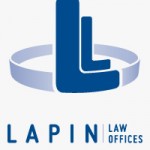By: Jeffrey Lapin
This is Part 2 in a 3-Part Series regarding the use of social networking sites by debt collectors. Part 1 of this Series discussed Facebook and Twitter, two of the most popular social networking sites and services. This Part will discuss the United Kingdom’s Office of Fair Trading recent prohibition against debt collectors using social media sites and services in a way that would or could harass a debtor.
The United Kingdom’s Office of Fair Trading (OFT) performs the same basic activities as the United States’ Federal Trade Commission’s (FTC) Bureau of Consumer Protection – Division of Financial Practices and the Consumer Financial Protection Bureau (CFPB), which is to draft and enforce regulations concerning debt collection. As stated in the Frequently Asked Questions on the OFT website:
Our mission is to make markets work well for consumers. . . .
We aim to achieve this by: The enforcement of consumer protection legislation in matters that affect consumers in general.
While there are differences, the United States and United Kingdom have similar laws regarding debt collection. Both countries prevent debt collectors from using tactics that are considered unfair. The United Kingdom tends to use the broader term “improper” while the United States’ Fair Debt Collection Practices Act (FDCPA), uses the words “harass, oppress, or abuse.”
REVISED OFT DEBT COLLECTION GUIDANCE
In October of 2011, the OFT updated its Debt Collection Practices: OFT guidance for all businesses engaged in the recovery of consumer credit debts- July 2003 (updated October 2011). (Full text available here). As stated in the Foreward to the Debt Collection Practices:
The primary aim of this guidance is to provide clarity for licensed businesses engaging in the recovery of consumer credit debts as to the standards the Office of Fair Trading (OFT) expects of businesses engaging in such activities.
Although the guidance is called ‘debt collection’ guidance, it has much broader application than simply covering the activities of third party debt collectors. As such, it sets out the standards expected of ALL parties engaging in the recovery of consumer credit debts.
The Debt Collection Practices identifies conduct that, in the OFT’s view, constitute unfair or improper debt collection practices. It also provides some illustrative examples of what would be improper.
In the newly revised edition, the Debt Collection Practices specifically addresses debt collection and social media. As set forth in Chapter 3, “Unfair or Improper Business Practices” it states:
Physical/psychological harassment
3.6 Putting undue pressure on debtors or relevant third parties (for example, appointed representatives) is considered to be oppressive and an unfair or improper practice.
3.7 Examples of unfair or improper practices are as follows:
p. inappropriately disclosing, or threatening to disclose, debt details to third parties
q. acting in a way likely to be publicly embarrassing to the debtor, either deliberately or negligently (that is to say, through lack of care)
For example:
• posting messages on social networking sites in a way that might potentially reveal that an identifiable person is being pursued for the repayment of a debt.
With regard to the inclusion of social networking websites in its updated Debt Collection Practices, David Fisher, the OFT’s Director of Consumer Credit, stated in a press release:
In the present economic climate, with many people, including those who may be particularly vulnerable, in financial difficulties, it is crucial they are treated fairly by companies recovering their debts. (Source: http://www.oft.gov.uk/news-and-updates/press/2011/113-11).
In addition, a spokesperson for the OFT said to the Daily Mail (Debt collectors banned from hounding people on Facebook or Twitter as it causes ‘stress and embarrassment’):
Contacting debtors through social networking sites was a new take on the old method of placing a postcard through the door. . .
‘It’s unfair and improper and it makes that private correspondence public. It causes stress and embarrassment to the debtor. It is not good business practice to do that.’
Both the public comments and the placement of the social networking prohibition within the Debt Collection Practices seem to indicate that the possibility of psychological stress on a debtor by a debt collector posting debt information on a social networking site was the primary reason for prohibiting this conduct.
The final Part of this Series, Social Media and Debt Collection: The United States, will discuss current United States law as it relates to debt collectors using social media to collect a debt.
Links to the other Parts of the Series: Social Media and Debt Collection
Part 1: Social Media and Debt Collection: Facebook and Twitter
Part 3: Social Media and Debt Collection: The United States
Other Lapin Law Offices’ Posts Regarding Debt Collection
An Update on H.R. 3035 (The Mobile Informational Call Act of 2011) and a Call to Action
Common Misperceptions About Credit Scores
Credit Scores: Why Are They So Important and How Are They Calculated
The Consumer Financial Protection Bureau (CFPB) – Will It Be Better for Consumers or Debt Collectors?
Proposed Act Would Permit Debt Collectors to Use Auto-Dialers to Call Cellular Telephones
ABOUT LAPIN LAW OFFICES
 Lapin Law Offices represents consumers harassed or abused by debt collectors. You can learn more about us and about your rights by calling us at 402-421-8033 (24/7) or on our websites: LapinLawOffices.com or StopBadCollectors.com.
Lapin Law Offices represents consumers harassed or abused by debt collectors. You can learn more about us and about your rights by calling us at 402-421-8033 (24/7) or on our websites: LapinLawOffices.com or StopBadCollectors.com.

